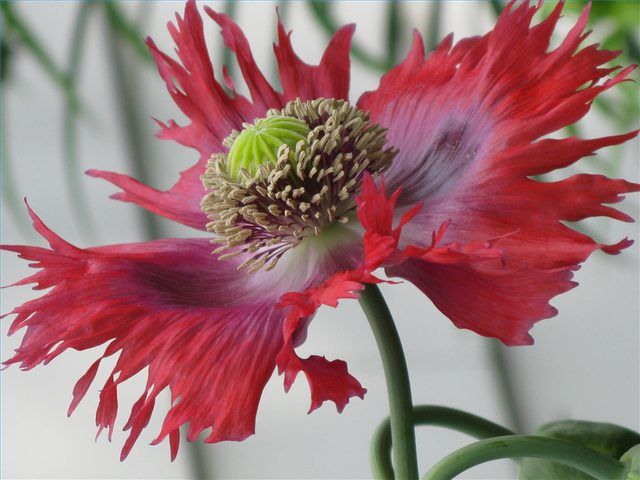Bulbs
Flower Basics
Flower Beds & Specialty Gardens
Flower Garden
Garden Furniture
Garden Gnomes
Garden Seeds
Garden Sheds
Garden Statues
Garden Tools & Supplies
Gardening Basics
Green & Organic
Groundcovers & Vines
Growing Annuals
Growing Basil
Growing Beans
Growing Berries
Growing Blueberries
Growing Cactus
Growing Corn
Growing Cotton
Growing Edibles
Growing Flowers
Growing Garlic
Growing Grapes
Growing Grass
Growing Herbs
Growing Jasmine
Growing Mint
Growing Mushrooms
Orchids
Growing Peanuts
Growing Perennials
Growing Plants
Growing Rosemary
Growing Roses
Growing Strawberries
Growing Sunflowers
Growing Thyme
Growing Tomatoes
Growing Tulips
Growing Vegetables
Herb Basics
Herb Garden
Indoor Growing
Landscaping Basics
Landscaping Patios
Landscaping Plants
Landscaping Shrubs
Landscaping Trees
Landscaping Walks & Pathways
Lawn Basics
Lawn Maintenance
Lawn Mowers
Lawn Ornaments
Lawn Planting
Lawn Tools
Outdoor Growing
Overall Landscape Planning
Pests, Weeds & Problems
Plant Basics
Rock Garden
Rose Garden
Shrubs
Soil
Specialty Gardens
Trees
Vegetable Garden
Yard Maintenance
Laws on Growing Poppies
Laws on Growing Poppies. Opium poppies have been outlawed in the United States since the early 1900s, yet these beautiful blooms continue to be a staple of old-fashioned gardens. Gardeners should be aware that the risks of growing Papaver somniferum are substantial, yet it is rare that law enforcement acts upon the DEA's recommendations when a few...

Opium poppies have been outlawed in the United States since the early 1900s, yet these beautiful blooms continue to be a staple of old-fashioned gardens. Gardeners should be aware that the risks of growing Papaver somniferum are substantial, yet it is rare that law enforcement acts upon the DEA's recommendations when a few plants are grown for aesthetic enjoyment and not the production of the poppy's sap that can be distilled to create opium, heroin, morphine and similar controlled substances.
Background
Opium poppy (Papaver somniferum), also called bread seed poppy and sometimes Turkish poppy or peony poppy, has been cultivated since around 3400 B.C.E. and has been used for both its medicinal and recreational drug qualities. The seeds of the plant, which do not contain significant amounts of the opiate substances, are legal to purchase, own and consume, although in recent years the DEA has attempted to outlaw--or at least deter--garden catalogs from selling the seed for planting in an effort to deter the propagation of an illegal substance.
Features
While the flowers of poppies may be intoxicating to look at, it is the seed pod that follows the flower which contains a milky sap that holds the main ingredients found in opium: morphine, codeine and thebaine. These substances are listed as Schedule II substances by the DEA. Schedule II drugs are considered to have a high abuse potential which can lead to addiction but do have an accepted medical use. These drugs may not be dispensed or used without a physician's prescription and monitoring.
Considerations
Schedule II drugs may not be manufactured, distributed, dispensed or possessed. The nature of a poppy plant is to produce its sap, which in turn contains many Schedule II narcotics. Penalties for possessing even a very small amount of Schedule II substances can lead a first time offender to a prison term of up to 5 years and fines of up to $1,000,000. Possessing a Schedule II substance with intent to manufacture (which includes growing) or distribute can lead to a prison term of up to 20 years.
Misconceptions
Many growers believe they will not be prosecuted for growing a few plants. While it is true that law enforcement rarely interferes with a few plants in the garden for the purpose of creating seed or just for aesthetic value, in the eyes of the law, it is only the amount of time you spend in prison that changes. In addition, it is not merely the fresh garden plant that is illegal. The dried seed pods and dried stalks and leaves of the plants, sometimes called "poppy straw," are also illegal to possess.
Warning
While it is perfectly legal to possess poppy seeds for culinary purposes, it appears to be no defense when it comes to a reason to grow poppy plants. In addition, eating poppy seeds has been known to cause positive results in drug screens of otherwise clean individuals.